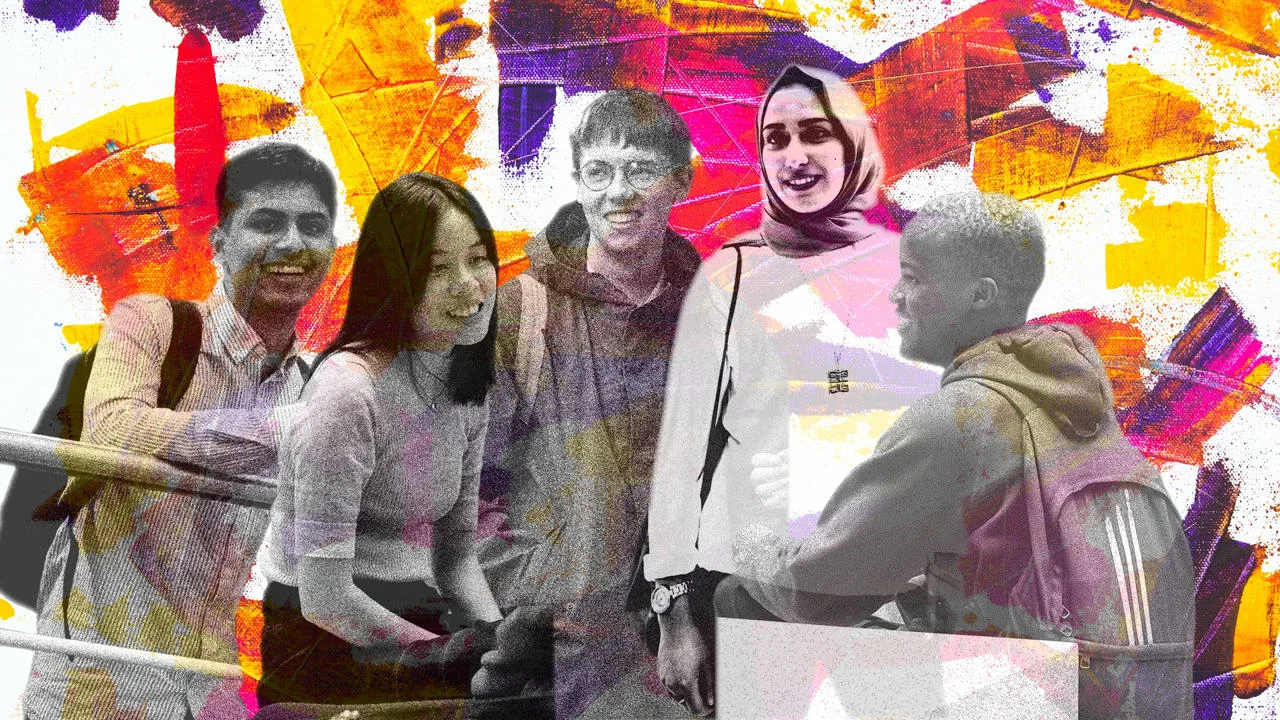Widening Participation: how universities are approaching "race" and ethnicity

Contents
"Against the urgency of people dying in the street, what in God’s name is the point of Cultural Studies?" An infamous quote by the late and great Stuart Hall, which quite perfectly sums up the frustrations I have had carrying out my own research during the course of the pandemic.
Ideas that circulate about “race”, ethnicity and access to university reproduce ideas about race that serve to justify state violence against certain communities.
Over the past 18 months or so, "race" and racism have been mainstream topics of discussion in the UK - from the disparities in which the COVID-19 pandemic hit black and brown communities, to the racism Asian communities were subjected to due to the idea of a "Chinese virus" and the resurgence of Black Lives Matter (BLM) protests following the murder of George Floyd.
This context has made researching "race" at such a time equal parts fascinating and frustrating. The, what felt like, constant discussions around race and racism made me feel as though my research was urgently needed. However, at times, I could not help but feel like my research area of choice, "race" and ethnicity in Widening Participation policy and practice, lacked importance in the wake of the violence towards racialised communities, in the UK and US in particular, that was being highlighted in a way I have never before witnessed in my lifetime.
We need to challenge difficult ideas, not reproduce outdated attitudes
To argue against my own (self) doubts however, I believe that my research is essential in order to question how ideas that circulate about "race", ethnicity and access to university reproduce ideas about race that serve to justify state violence against certain communities. Think "low-attaining", "misbehaving" and "role-model lacking" young black boys, for example.
Widening Participation (WP) is the name given to work by universities and third sector organisations that is concerned with helping students from "underrepresented" backgrounds enter higher education. There’s much to be said about what underrepresented means in the context of higher education, but that’s a discussion for another time. Most universities in England have WP departments (also often called Outreach departments) in which this work sits, on some occasions this work will sit in Student Recruitment teams.
How does Widening Participation policy work in practice in England?
The work of WP is overseen by the Office for Students (OfS), "the independent regulator for higher education in England" who instruct all providers of higher education in England that want to charge higher level tuition fees to produce Access and Participations Plans (APPs). These plans must "set out how higher education providers will improve equality of opportunity for underrepresented groups to access, succeed in and progress from higher education." These APPs and the practitioners who work in WP departments are the source of my research data.
Amongst other social categories, all APPs must include analysis of ethnicity data in terms of access rates, degree attainment and continuation as well as career progression after university. Where there are disparities, or "gaps", in these data, targets must be produced. From the access targets in particular, WP programmes must be designed and delivered.
Some institutions opt for programmes which are exclusively for specific target ethnic groups, while for other institutions, ethnic groups become criteria in which a younger person is deemed eligible for a particular WP programme (another criteria might be Free School Meal status, for example). Some have neither of these - their data shows no targets around ethnicity.
Race is something we struggle to talk about in the Widening Participation sector.
The challenge of critically engaging with issues of "race"
I began my research from the observation that race is something we struggle to talk about in the WP sector. I say we, as prior to my PhD research I worked full time with a third sector WP organisation and on and off with WP departments at universities. It worried me that as a sector mandated by national policy to work with categories of "race" and ethnicity, we weren’t actually able to engage with these categories in a thoughtful and critical way. However, one thing I have observed in interviews with WP practitioners is that almost unanimously participants have mentioned last summer’s BLM protests as notable moments in which discussion about "race" and racism began or became more urgent in their institutions of work.
I am aware that I have used the terms "race" and ethnicity both alongside one another and interchangeably. A significant next step of my research is to hash out my theoretical underpinnings of both concepts. Interestingly, the OfS uses the term ethnicity rather than "race" and broadly categorises these ethnic groups as Black, Asian, Mixed and Other. I have major issues with these categories, as they homogenise complex groups and hide the varied rates of access within these groups.
Why do categories matter?
My research is ultimately interested in how as a sector we work with these categories. What meanings become attached to them? What understandings of "race" and ethnicity exist amongst practitioners in the sector and what does WP work look like as a result of this? I think any sector which claims to be one of social justice and for the promotion of equality should be meticulously analysed to ensure that there are not detrimental consequences to the work. My worry is that the WP sector (re)produces problematic ideas around "race" and ethnic categories in a well-intentioned attempt to create equal opportunities for young people to access higher education.
Image: LSE (Maria Moore/Matt Stuart) and Unsplash
Download a PDF version of this article




